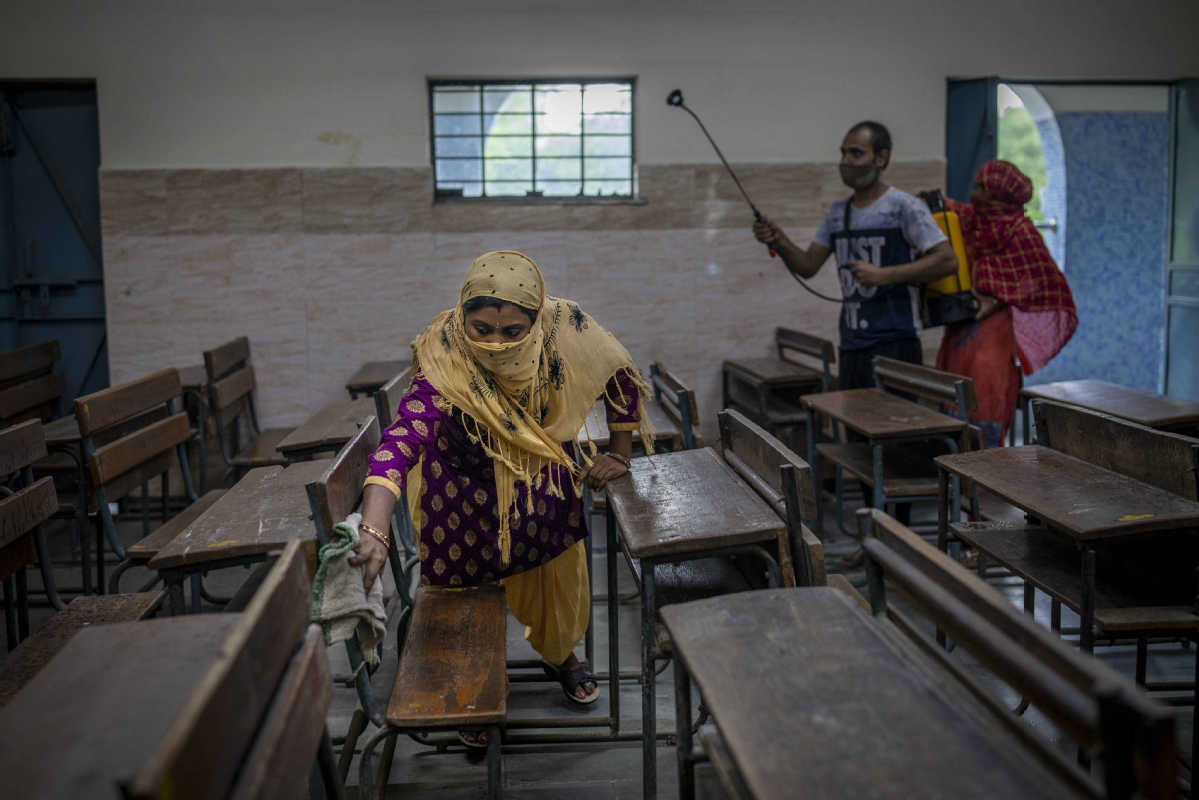India's schoolkids confront 'new normal'


"While their parents struggle to make ends meet, children, especially girls, share the responsibility of taking care of the family. Smartphone is something very few can even dream. This creates a psychological impact on the children,"Kundu said.
"It is impossible for my three children to share one phone in order to complete their online classes," said a mother who declined to be identified.
Some schools have gone the extra mile to help students. Devices have been provided, and internet connections have been sponsored."Teachers have taken extra time out to reach out to children, even on the phone," Kundu said.
Suvarna Sen, a psychologist, said adolescence is a critical period for the development and treatment of mental health issues-and if those problems are left untreated, they may be much harder to remedy in later life.
In India, the lack of access is often worse for girls, with some research suggesting millions of girls could drop out of secondary school as a result of the pandemic. "And it is almost certain that many will never return to education because of issues such as child marriage and poverty," said Sen. She noted how sexism, gender inequality and harassment have been increasing.
According to the Centre for Budget and Policy Studies, a Bangalore-based think tank, 71 percent of girls reported doing domestic chores during the pandemic, compared to 38 percent of boys. Access to a phone was also 11 percent greater for boys.
Not only do girls face the brunt of household duties, they are also supposed to take care of children.
"Now we see girls cooking all the meals for their family and doing all household chores," Sen said, adding that for millions of girls in India school is the place where they get relief from having to do household chores.
"For many it is also a place where they would get a free nutritious meal. With schools closed many of the girls have lost their interest in studies," she added.
Tanisha Shome, who teaches at a high school in Bangalore in southern India, said it seems that for many girls education has taken a back seat because there is also so much more to do at home instead of studies.
"In poor households, girls are supposed to do cleaning, cooking, even looking after their younger siblings. They are hardly given any space or time to study," said Shome.


















